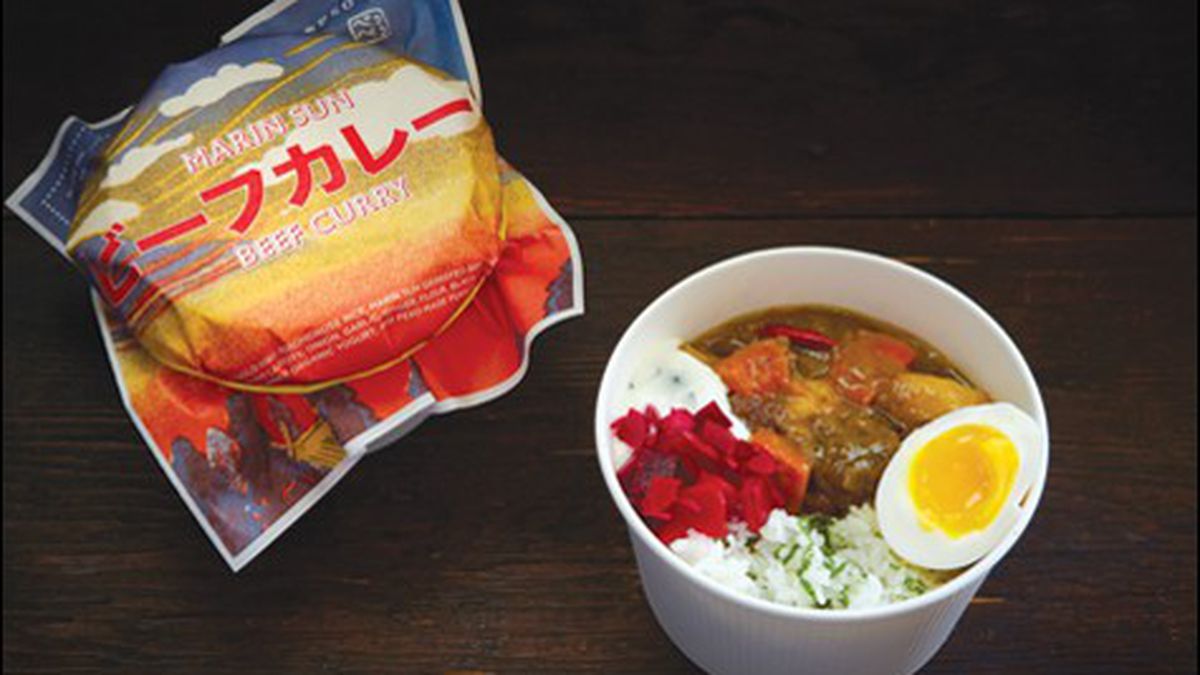Pop-ups started as a way to give new food businesses a boost. Places like the now-defunct Pop-Up General Store introduced people to new products, like the now ubiquitous kouign amanns produced by Starter Bakery. That particular pop-up, situated in North Oakland, allowed people to pre-order goods from small producers, then pick them up at an occasional market.
But the pop-up, while wildly popular, ended — partly because of its popularity.
“The Pop-Up General Store was a pretty fabulous event but it was logistically quite difficult to organize — not that it wasn’t well organized. It was just tricky,” said Sylvan Brackett, whose bento-box business, Peko-Peko, participated.
According to a recent article in Edible East Bay, “Death of the Pop-Up,” pop-ups are falling out of fashion because, for the food producer, “it ceases to be about cooking anymore. … Your main job title has become social media maven and event coordinator. When not informing the masses about when next your pop-up will surface, you’re taking orders or reservations and making sure you’ll have the goods.”
Enter Good Eggs — an Etsy-like online marketplace for locally produced food. Through its series of “webstands,” customers can order anything from organic produce to freshly caught sardines, and schedule it to be delivered right to their doors, or arrange to pick it up at a prearranged neighborhood location.
Good Eggs has serious street cred. The start-up has had no problem attracting venture capital thanks to its staff of veterans from companies like Google and Yahoo. Alice Waters acts as an official adviser, and will be contributing to Good Eggs’ blog. Samin Nosrat, a co-founder of Pop-Up General Store, also acted as an adviser over the past several months.
“We set out [with] this mission to grow and sustain local food systems,” Rob Spiro, CEO and co-founder of Good Eggs, told me recently. “We spent time researching ranches, farms, cooks, and other small producers; we went grocery shopping with all sorts of people. Over the course of a year we tested our ideas and we consulted with as many smart folks as we could find, including the folks who organize the Pop-Up General Store in Oakland, about what they learned through that process. And, ultimately, we built this software.” The website enables purveyors to create their own online store.
“Not only are they setting up this web store,” said Brackett, a current vendor with Good Eggs, “but they’re helping people promote their work and come up with best practices, like setting up a weekly email to your customer base to remind them that you’re there. And they help you do a lot of the marketing things that a lot of people running a small business know that they need to do but don’t have a lot of experience or time to do.”
Good Eggs’ staff is currently piloting their project, initially focusing on neighborhoods in San Francisco and parts of Berkeley and Oakland. Current vendors that will deliver to the East Bay include Four Barrel Coffee, Ocho Verde Farm, Peko Peko, and Three Babes, and pickup points are currently located in Jack London Square; at The EatUp (at 21st St. and Telegraph Ave.); and at Berkeley Ironworks.
Documentary Features Local Farmers
The new documentary Edible City chronicles the urban farming renaissance over the last few years — the gradual takeover of empty lots and their conversion into organic gardens as a natural and practical response not only to Big Ag, but to urban problems like food scarcity and obesity.
Filmed mainly in the Bay Area, the hour-long documentary is dominated by some of the pioneering urban food activists and farmers that work and live here, including Willow Rosenthal of City Slicker Farms, Jim Montgomery of Green Faerie Farm, and Joy Moore of Berkeley Alternative School.
Edible City Trailer 1 from Edible City on Vimeo.
Although some of the discourse, particularly about industrial ag, will be a rehash for those who have read The Omnivore’s Dilemma or watched Food, Inc., the portrayal of the intersection of agriculture with inner-city problems is fresh and inspiring. There are a lot of first-hand glances at everyday people trying in small yet tangible ways to change the world around them: converting liquor stores in West Oakland into organic food markets, or gently teaching cocky high school students where strawberries come from.
Community response to the film has been positive. “I wanted to show who these people are, and why they are magical,” the film’s director, Andrew Hasse, told me recently. “And my nine-year-old neighbor said, ‘You know, it didn’t bore me.'”
Two screenings are coming to Berkeley in the coming months: on Thursday, August 2, at Local 123 cafe (2049 San Pablo Ave., Berkeley), and on Thursday, October 11 at the Hillside Club (2286 Cedar St., Berkeley), a larger event where people in the film will be in attendance. Or you can watch it for free anytime at EdibleCity.net.
















